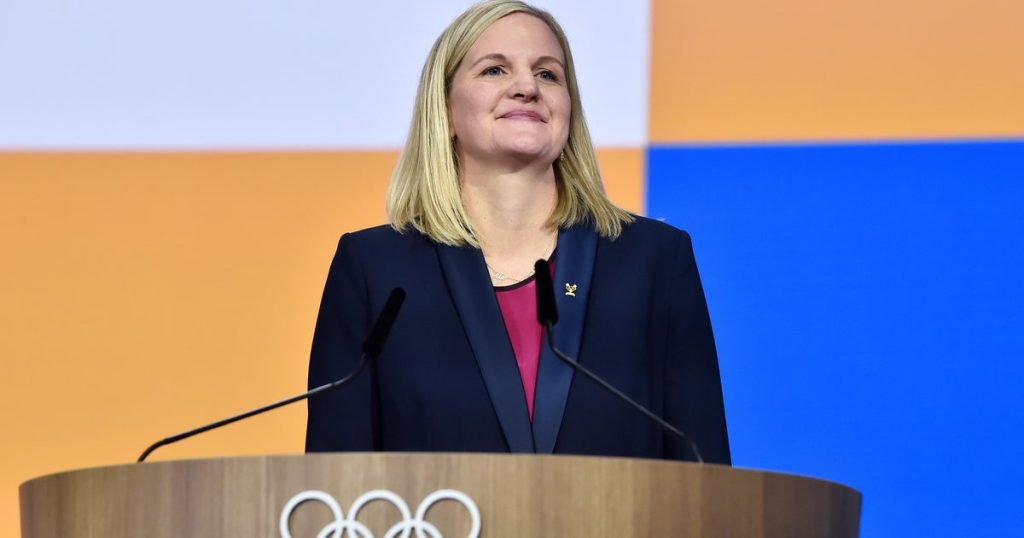In a historic election on Thursday, Kirsty Coventry was appointed the president of the International Olympic Committee (IOC), making her the first woman and the first African to hold this prestigious position in the realm of sports. The election, which featured seven candidates, culminated in a decisive victory for Coventry, securing her an eight-year term until 2033. During her acceptance speech, she emphasized her role as a global representative for athletes and expressed her commitment to breaking barriers in the sports world.
| Article Subheadings |
|---|
| 1) Background and Significance of the Election |
| 2) Coventry’s Historic Win |
| 3) Challenges Ahead for the IOC |
| 4) The Implications of Coventry’s Leadership |
| 5) The Future of the Olympic Movement |
Background and Significance of the Election
The election of the IOC president is a significant event in the world of sports, with vast implications for how the Olympic Games are managed and how athletes are supported. This year, the election drew particular attention due to the unprecedented nature of the candidates and the wider context of global sports. With ongoing discussions about equality, representation, and athlete welfare, Coventry’s election represents a pivotal moment in the Olympic Movement’s history. As the 10th president in the IOC’s 131 years, Coventry’s win marks a substantial shift in perspective, prioritizing a more diverse leadership approach.
Coventry’s Historic Win
Achieving victory in an election considered more open than previous ones, Kirsty Coventry secured the presidency with a singular, remarkable majority of 49 votes, thereby avoiding the anticipated multiple rounds of voting. Her success is largely attributed to her extensive background as a two-time Olympic gold medalist in swimming and a dedicated member of the IOC since 2013. During her acceptance speech, she stated,
“The young girl who first started swimming in Zimbabwe all those years ago could never have dreamt of this moment.”
At just 41 years old, Coventry is recognized not only for her sporting prowess but also for her commitment to serving as a role model, emphasizing inclusivity and empowerment in sports.
Challenges Ahead for the IOC
Despite her impressive victory, Coventry is faced with numerous challenges as she steps into her new role. With the 2028 Summer Games set to take place in Los Angeles, it is critical for her to navigate not only logistical issues but also political dynamics with figures such as U.S. President Donald Trump. Furthermore, her administration will be tasked with identifying potential host nations for the 2036 Summer Games, with strong candidates emerging from India and the Middle East. Coventry plans to tackle these challenges head-on, building on her campaign platform that stresses the well-being of athletes and the importance of their voices in the Olympic Movement.
The Implications of Coventry’s Leadership
Kirsty Coventry’s presidency may signal a broader transformation within the IOC’s leadership structure, especially in terms of gender parity and athlete representation. One component of her manifesto centers on sustaining attention to mental health, physical recovery, and holistic well-being throughout an athlete’s career as key priorities. With several of her competitors presenting detailed proposals aimed at enhancing Olympic athletes’ benefits, Coventry’s focus on continuity with previous strategies may indicate a cautious approach during her initial term. The legacy she builds as president will likely depend on how successfully she can advocate for these issues during her time in office.
The Future of the Olympic Movement
Looking ahead, the international sports community anticipates Coventry’s influence on the future landscape of the Olympic Movement. Her election has been celebrated by various organizations, including the U.S. Olympic Committee, which expressed enthusiasm for her leadership qualities and commitment to advancing global sports. The evolution of her presidency will undoubtedly define the IOC’s stability and response to various global sporting events, and, in her capacity as president, Coventry will also have to maintain cohesion among IOC members and other stakeholders who have historically wielded powerful influence in Olympic affairs. Efforts to strike a balance of traditional values with modern evolution will be crucial in maintaining the relevance of the Olympic Games in the coming years.
| No. | Key Points |
|---|---|
| 1 | Kirsty Coventry is the first woman and African to be elected president of the IOC. |
| 2 | Coventry won the election with a decisive majority of 49 votes from the IOC members. |
| 3 | Challenges facing Coventry include the need to engage in global sports politics leading up to the 2028 Olympics. |
| 4 | Her leadership will focus on athlete mental health and holistic well-being. |
| 5 | Coventry’s presidency may redefine the IOC’s commitment to gender parity and athlete representation. |
Summary
The election of Kirsty Coventry as the IOC president marks a monumental milestone in the history of not just the organization, but in the broader landscape of global sports. Her victory is a beacon of hope for aspiring leaders and athletes around the world, reflecting a commitment to diversity and inclusion within the Olympic Movement. As she embarks on her eight-year term, challenging yet exciting prospects lie ahead, shaping the future of the Olympics as we know them.
Frequently Asked Questions
Question: What does Coventry’s election symbolize for women in sports?
Coventry’s election represents a groundbreaking moment for women in sports, breaking the highest glass ceiling within the Olympic Movement and serving as an inspiration for future generations of female athletes and leaders.
Question: How will Coventry support athletes during her presidency?
Coventry has pledged to focus on athletes’ mental health and overall well-being, aiming to create an environment that nurtures their physical and emotional health and emphasizes their importance in the Olympic Movement.
Question: What are some key challenges Coventry will face?
Coventry must navigate complex political dynamics as the IOC prepares for the 2028 Summer Games, secure new host cities for future Olympics, and address ongoing issues of equity, representation, and athlete welfare within the Olympic Movement.


